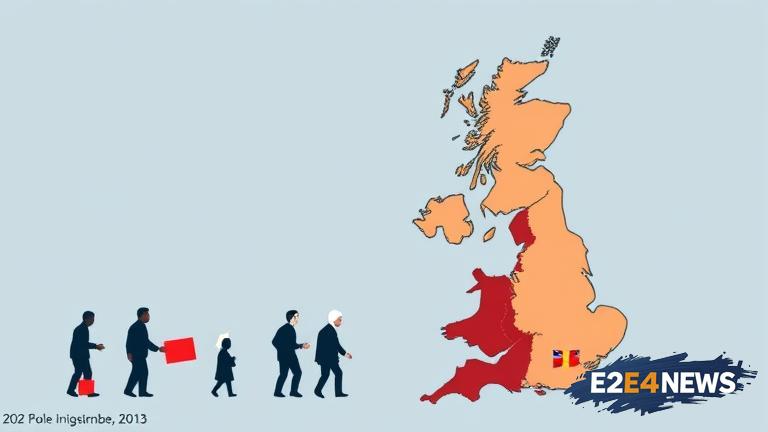A survey conducted in the UK has shed light on the public’s perception of Muslim immigration, with nearly four in ten respondents expressing the view that it has a negative impact on the country. The poll, which gathered data from a representative sample of the population, found that 40% of participants held this opinion. This statistic has sparked concern among community leaders and advocacy groups, who argue that such sentiments can contribute to a divisive and hostile environment for Muslim immigrants. The survey also revealed that a significant proportion of respondents believed that Muslim immigrants were not integrating sufficiently into British society. However, experts have pointed out that this perception may be influenced by a lack of understanding and exposure to Muslim communities. Despite these findings, it is essential to note that the UK has a long history of welcoming immigrants and promoting diversity. Many Muslim immigrants have made significant contributions to British society, including in fields such as medicine, education, and politics. Nevertheless, the poll’s results highlight the need for greater efforts to promote social cohesion and address misconceptions about Muslim immigration. Community leaders are calling for increased dialogue and engagement between different faith groups and communities to foster greater understanding and respect. The government has also been urged to implement policies that promote integration and address the social and economic challenges faced by Muslim immigrants. Furthermore, the poll’s findings have sparked a debate about the role of media representation in shaping public perceptions of Muslim immigration. Some argue that biased or inaccurate reporting can perpetuate negative stereotypes and contribute to a climate of hostility. In response, media outlets have been encouraged to adopt more nuanced and balanced approaches to reporting on Muslim immigration. The UK’s Muslim community is diverse and vibrant, with people from various backgrounds and countries of origin. The poll’s results have also been seen as a reflection of the broader challenges faced by immigrant communities in the UK, including discrimination, poverty, and social exclusion. To address these challenges, it is essential to develop policies and programs that promote social inclusion, economic opportunity, and community engagement. Ultimately, the poll’s findings serve as a reminder of the need for ongoing efforts to build a more inclusive and harmonious society in the UK.
